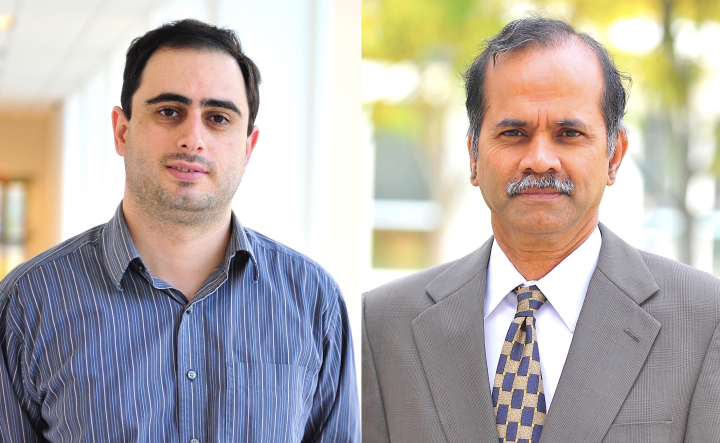Mohammad Hajiaghayi and Rama Chellappa Honored by Washington Academy of Sciences
Mohammad Hajiaghayi from the Department of Computer Science, who holds the Jack and Rita G. Minker Professorship, and Rama Chellappa, a Bloomberg Distinguished Professor, are being recognized by the Washington Academy of Sciences with the organization’s highest honor, the Distinguished Career Award.
Since 1940, the Washington Academy of Sciences has recognized top scientists in the region for their scientific achievements and leadership, with the Distinguished Career Award acknowledging scientists and scholars that have had a significant impact on their respective fields of study.
Hajiaghayi was cited for his significant contributions to the mathematical foundations of algorithms, game theory, e-commerce, and related areas.
“Professor Hajiaghayi is an extraordinarily productive and prolific researcher with a tremendously impressive and significant collection of works in algorithmic game theory and algorithms in general for networking, auction design, and pricing, as well as a wide range of fundamental graph-based optimization problems,” wrote Ming Lin, a Distinguished University Professor of computer science who nominated Hajiaghayi for the award.
In addition to his work in the mathematical foundations of algorithms, Hajiaghayi’s research and scholarship focuses on distributed and mobile computing, machine learning, and computational geometry and embeddings.
He received his doctorate in applied mathematics at MIT in 2005, Master of Science degree in computer science from the University of Waterloo in 2001, and undergraduate degree in computer engineering from Sharif University of Technology in 2000. He has been a faculty member at UMD since 2010.
Chellappa, a Bloomberg Distinguished Professor in electrical, computer and biomedical engineering at the Johns Hopkins Whiting School of Engineering, was recognized by the academy for his pioneering contributions to computer vision and artificial intelligence.
Chellappa joined the University of Maryland in 1991, and led much of the computer vision work on campus for the next 29 years. A member of UMIACS from 2001–2020, Chellappa served as director of the Center for Automation Research for several years.
He has been at Johns Hopkins since April 2020, where he is the chief scientist at the Johns Hopkins Institute for Assured Autonomy.
“Professor Chellappa’s wide array of pioneering and lasting contributions to computer vision, machine learning and AI are especially powerful in the areas of image and video-based face/action recognition, trustworthy AI, and Markov random fields,” wrote UMD’s Lin, who also nominated Chellappa for the Distinguished Career Award.
Chellappa received his B.E. (Hons.) degree from the University of Madras in 1975 and M.E. (Distinction) degree from Indian Institute of Science in 1977. He also holds M.S.E.E. (1978) and doctorate degrees (1981) in electrical engineering from Purdue University.
Hajiaghayi and Chellappa, hold affiliation with the prestigious University of Maryland Institute for Advanced Computer Studies (UMIACS). The distinguished researchers were honored on May 12 at the academy’s annual meeting at the George Washington Masonic National Memorial in Alexandria, Virginia.
—Story by UMIACS communications group
The Department welcomes comments, suggestions and corrections. Send email to editor [-at-] cs [dot] umd [dot] edu.
